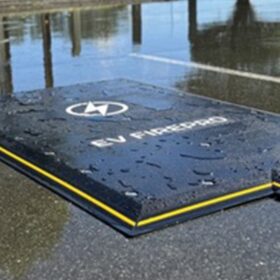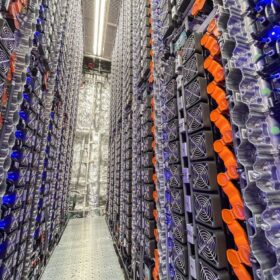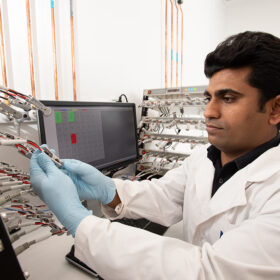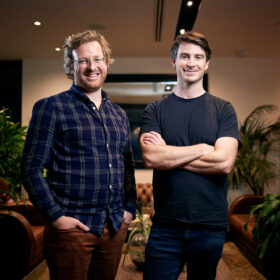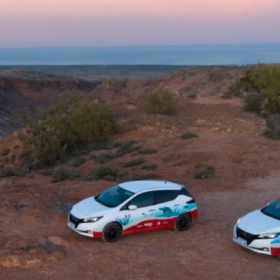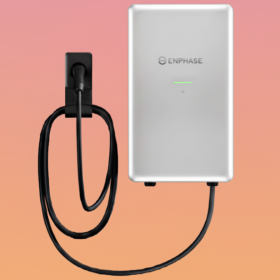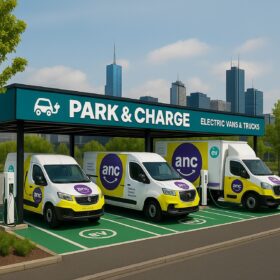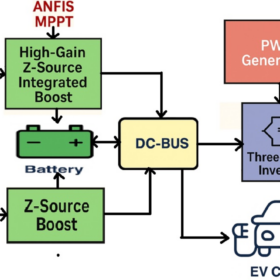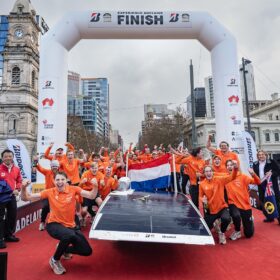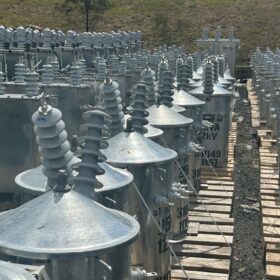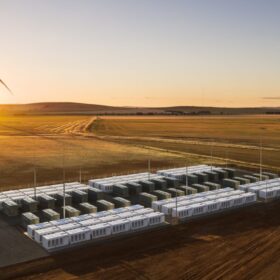Australian-made EV fire suppression system validated in lab tests
Queensland company EV Fire Protection is eyeing global markets after securing independent verification for what it says is the world’s first fixed suppression system engineered specifically for electric vehicle fires.
Mercedes unveils car with 20% efficient ultra-thin solar coating
Mercedes-Benz has unveiled a prototype car with a silicon-free, 20%-efficient nanoparticle solar coating that powers the vehicle even when off and uses modules thinner than a human hair.
Incat starts energisation process for world’s largest electric ship
The world’s largest battery-electric ship has reached a new milestone with shipbuilder Incat Tasmania confirming that one of the vessel’s four battery rooms is now receiving electrical charge ahead of sea trials later this year.
Queensland university $2.2 million grant win promises boost to battery supply chain
Researchers at the Queensland University of Technology have secured $2.2 million for a project to diversify cathode production for batteries in the Indo-Pacific region alongside 11 research projects receiving funds from a $24 million federal government pool.
Amber continues overseas push with home energy management tech
Energy retailer and technology company Amber Electric has secured $10 million in new funding to continue scaling its residential solar and battery automation tech into overseas markets.
Western Australia successfully completes vehicle-to-grid charging trial
Western Australia’s regional energy provider Horizon Power has completed a 12-month trial testing vehicle-to-grid, two way charging of electric vehicles in the far north regional town of Exmouth.
Enphase presents bidirectional EV charger
The microinverter company has disclosed details on the architecture of its IQ Bidirectional EV Charger, which will be available for sale in the second half of 2026. It is reportedly able to deliver up to 11.5 kW of bidirectional power.
Logistics company plans multiple charge stations ahead of 30% EV fleet growth
A Sydney headquartered logistics company Australian National Couriers has grown its electric vehicle fleet to over 100 delivery fleets, representing 12.5% of it’s total, with the company targeting 30% by 2028.
Novel MPPT technique for EV charging combined with PV, fuel cells
Scientists from India have designed a novel electric vehicle system with a reported efficiency of 98.7%, using PV panels, a proton-exchange membrane fuel cell, battery storage and supercapacitor, with hopes to expand the concept to renewable-energy-based DC microgrids with vehicle-to-grid (V2G) capability.
Dutch teams dominate world solar challenge claiming top two positions
The Netherlands Brunel Solar Team have crossed the Bridgestone World Solar Challenge finish line in Adelaide, i first place, after travelling 3,021 kilometres from Darwin to the South Australian capital, at an average speed of 86.6 kph, and just shy of 35 hours on the road.
